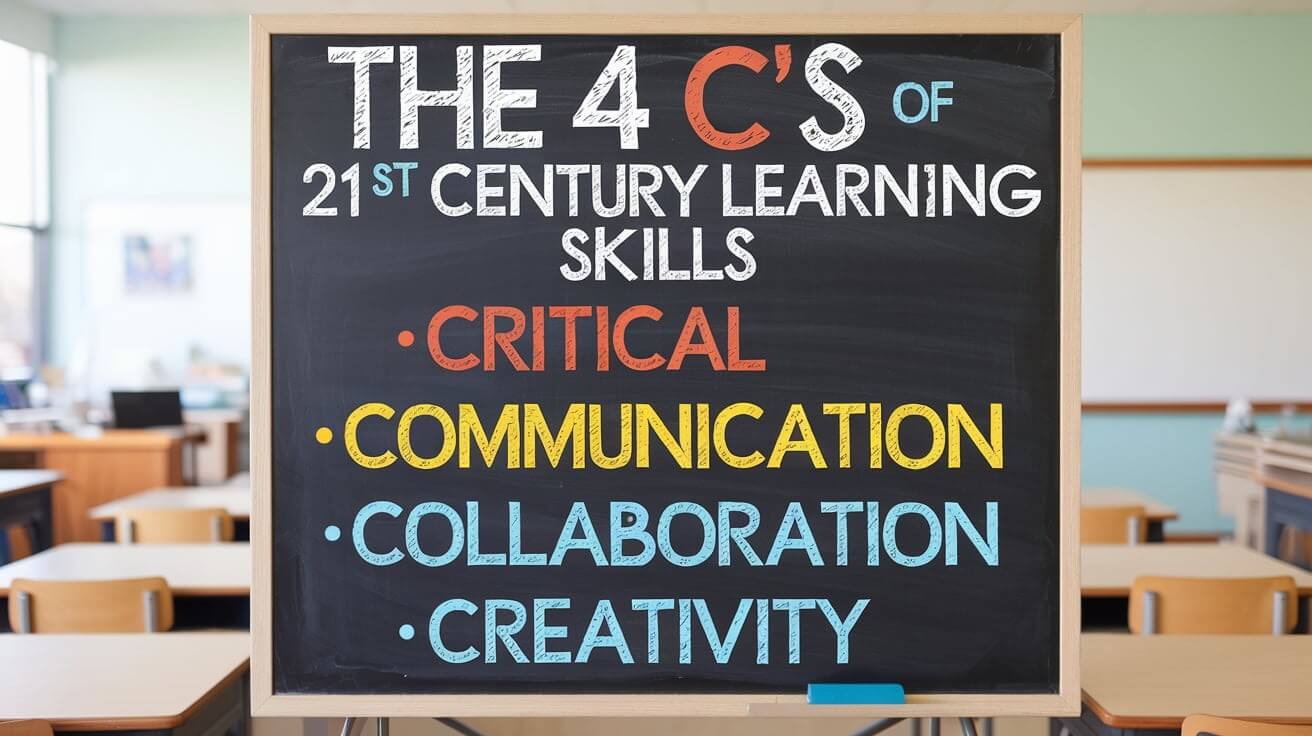
Thinking critically is a foundational skill that helps individuals assess information carefully, address challenges efficiently, and make well-considered decisions. Whether you're a student, a professional, or someone navigating everyday life, developing critical thinking can improve your ability to reason and act with clarity.
This guide offers practical strategies, supported by research and relatable examples, to help you build and apply these skills across different aspects of your life.
What Is Critical Thinking?

Critical thinking is analyzing, evaluating, and synthesizing information to form reasoned conclusions or judgments. It's not about being overly skeptical or critical but approaching problems and decisions with logic and care.
Imagine reading an article online. Instead of accepting the claims at face value, you examine the evidence, consider alternative viewpoints, and verify the source. This practice ensures you make informed decisions based on credible information.
Why Is Critical Thinking Important?
In a world filled with endless information, the ability to discern fact from fiction is more valuable than ever. Critical thinking helps you navigate challenges, understand different perspectives, and communicate your ideas.
A report from the World Economic Forum highlights critical thinking as one of the top skills for success in modern workplaces. It's considered vital for problem-solving and adapting to new environments.
How Does Critical Thinking Relate to the 4 C's of 21st-Century Skills?

Critical thinking is deeply interconnected with the "4 C's" framework—Critical Thinking, Creativity, Collaboration, and Communication—which forms the cornerstone of 21st-century skills. Each of these elements complements the others, creating a comprehensive approach to personal and professional development in a world that demands adaptability and innovation.
Critical Thinking:
Critical thinking serves as the foundation for all other skills. It equips individuals to evaluate information, question assumptions, and make informed decisions. Without critical thinking, creativity can lack focus; collaboration may fail to address key challenges, and communication risks may be unclear or ineffective.
Creativity:
Critical thinking fuels creativity by providing a structured approach to problem-solving. It enables individuals to thoroughly examine problems and create innovative, practical, and achievable solutions.
For example, an entrepreneur might use critical thinking to assess market trends and then apply creativity to design a product that meets emerging customer needs. The synergy between these skills ensures that ideas are original and grounded in reality.
Collaboration:
Working with others often requires navigating diverse perspectives and integrating them into cohesive solutions. Critical thinking plays a vital role here, enabling individuals to evaluate differing viewpoints objectively and find common ground.
Critical thinking helps team members avoid conflicts in group projects by focusing on evidence-based reasoning. This ensures that decisions are well-informed and inclusive of everyone's contributions.
Communication:
Clear and effective communication is essential for sharing ideas, persuading others, and building understanding. Critical thinking strengthens communication by helping individuals organize their thoughts, support their arguments with evidence, and convey their message compellingly.
For example, in a professional setting, critical thinking can help a manager deliver feedback in a constructive and actionable manner, fostering growth and motivation among team members.
Together, these skills create a practical framework for thriving in educational, professional, and personal settings. By integrating critical thinking with creativity, collaboration, and communication, individuals can approach challenges holistically, generate innovative ideas, and effectively convey their solutions. This combination enhances personal growth and contributes to the success of teams, organizations, and communities.
4 Cs Real-Life in Real-Life:
Imagine a nonprofit organization planning a campaign to raise awareness about environmental sustainability. The team uses critical thinking to analyze data on local environmental issues, applies creativity to design engaging promotional materials, collaborates with various stakeholders to ensure a broad reach, and communicates their message effectively to inspire community action. By leveraging all four C's, the campaign becomes impactful and achieves its objectives.
Ultimately, integrating the 4 C's enables individuals to excel in diverse environments, equipping them with the tools to adapt, innovate, and lead effectively in the 21st century.
Strategies to Develop Critical Thinking Skills

Building critical thinking takes time to happen. It requires intentional practice and an open mindset. Below are strategies to help you cultivate this skill.
1. Practice Reflective Thinking
Reflective thinking involves pausing to analyze your thoughts, decisions, and actions. It's a way to step back and evaluate whether your approach was effective or if there's room for improvement.
After a team project, reflect on what went well, what could have been done better, and how you contributed to the group's success.
Studies from King's College London show that journaling can enhance self-awareness and critical thinking by helping individuals identify patterns in their reasoning.
2. Engage in Active Learning
Active learning requires you to participate in the learning process rather than passively absorbing information. This includes discussions, problem-solving activities, and hands-on experiences.
Join workshops, debates, or group activities that challenge your thought process. Engaging with others often exposes you to new ideas and perspectives.
3. Be Open to New Perspectives
Open-mindedness is crucial for critical thinking. It allows one to consider alternative viewpoints and embrace ideas that challenge one's beliefs.
If you disagree with someone's opinion, ask questions to understand their perspective rather than reducing it outright.
4. Improve Problem-Solving Skills
Problem-solving is at the heart of critical thinking. Whether it's a workplace challenge or a personal decision, breaking the problem into smaller parts makes it easier to analyze.
Suppose you're planning a budget for a family vacation. By listing potential expenses and comparing options, you can make well-informed choices that cooperate with your goals.
Use structured approaches like decision trees or pros-and-cons lists to streamline problem-solving.
5. Collaborate with Others
Collaboration helps you learn from others' experiences and viewpoints. Working in teams exposes you to ideas you might have yet to consider.
A team brainstorming session can lead to innovative solutions that only emerge in collaboration.
According to the Harvard Business Review (HBR), diverse teams are more effective at problem-solving and outperform homogenous groups by 35%.
Applying Critical Thinking in Real-Life Scenarios
Critical thinking is a versatile skill that influences many areas of life, from education and the workplace to everyday decision-making. It helps you approach challenges logically, make smarter decisions, and better understand the world around you. You can confidently navigate complexities and achieve thoughtful, well-informed outcomes by applying critical thinking in different contexts.
In Education
Students who develop critical thinking skills gain the ability to evaluate information critically, analyze complex concepts, and draw informed conclusions. This skill goes beyond rote memorization and fosters independent learning, enabling students to question assumptions and think deeply about subjects.
A history student studying primary sources, such as letters or government documents, might analyze the author's potential biases, the socio-political context of the time, and the intended audience. By doing so, they gain a richer understanding of the material rather than simply accepting it at face value.
A science student experimenting might use critical thinking to troubleshoot unexpected results. Instead of assuming the experiment failed, they evaluated variables, tested hypotheses, and refined their methods.
According to a Stanford History Education Group study, students who practice evaluating primary sources are better equipped to discern credible information, a crucial skill in the digital age.
In the Workplace
Critical thinking is a cornerstone of professional success. Whether it's making strategic decisions, solving conflicts, or driving innovation, employees and leaders rely on this skill to navigate complex situations.
A marketing manager planning the launch of a new product might start by analyzing market trends, customer feedback, and competitor strategies. By critically evaluating this data, they can identify the best opportunities and minimize risks, leading to more effective and profitable campaigns.
During a workplace conflict, an HR professional might use critical thinking to listen to all parties involved, evaluate the facts objectively, and propose solutions that manage the root cause of the issue.
A Deloitte report highlights that 75% of executives value critical thinking as a core competency for leadership roles, emphasizing its importance for effective decision-making and innovation.
In Everyday Life
Critical thinking is equally valuable for navigating the challenges of daily life. From managing personal finances to tracking the credibility of news, this skill helps individuals make sound decisions and avoid common pitfalls.
A critical thinker doesn't rely solely on advertisements or salesperson recommendations when buying a car. Instead, they research different models, compare prices, read reviews, and test drive options to ensure they make the most informed choice.
Planning a vacation is another scenario where critical thinking can be applied. Instead of booking the first package deal, a critical thinker might compare costs, read reviews of accommodations, and evaluate travel itineraries to find the best value for their money.
A study by Pew Research found that individuals who regularly evaluate sources and question claims are more likely to identify fake news and avoid falling for misinformation online.
Overcoming Challenges in Developing Critical Thinking

1. Recognizing and Reducing Cognitive Biases
Cognitive biases, such as confirmation bias, can distort judgment. Becoming aware of these biases is the first step toward overcoming them.
Actively seek out information that difficulties your existing beliefs. For example, if you think a particular brand is the best, research competitors objectively to broaden your perspective.
2. Managing Information Overload
In the digital age, the sheer volume of information can be overwhelming. Learning to filter credible sources is a crucial aspect of critical thinking.
A study by Pew Research highlights that people who regularly evaluate sources and cross-check facts are more likely to make informed decisions.
How to Get Started
Developing critical thinking is not a one-time task; it's a lifelong journey that requires consistent effort and practice. Fortunately, integrating this skill into your daily life is practical and rewarding. Here are some actionable steps to help you begin:
Ask Questions:
Cultivate the habit of questioning everything you encounter. Instead of accepting information at face value, probe deeper by asking "why" and "how."
For example, if you read an article claiming a new diet is the key to health, ask questions like: "What proof supports this claim?" or "Who conducted this research, and are there conflicting viewpoints?" This practice trains your mind to seek evidence and think independently.
Challenge Assumptions:
Be open to examining your own beliefs and the assumptions of others. Often, we operate on unverified premises that shape our decisions and actions.
For instance, if you assume you're not good at math, challenge that belief by reflecting on its origin. Is it based on past experiences, or could it change with practice? You open yourself to growth and new possibilities by identifying and questioning assumptions.
Read Widely:
Expanding your knowledge base is crucial for developing a well-rounded perspective. Read books, articles, and studies from various fields, cultures, and viewpoints.
For example, reading both sides of a climate change or healthcare reform debate can deepen your understanding and help you form balanced opinions. Exposure to diverse ideas broadens your intellectual horizon and sharpens your analytical skills.
Practice Decision-Making:
Decision-making is a practical application of critical thinking that can be improved through structured methods. Use tools like decision trees, pros-and-cons lists, or cost-benefit analyses to evaluate choices systematically.
For example, list factors like salary, growth opportunities, work-life balance, and long-term goals when deciding whether to switch jobs. Assess each factor's importance and weigh the options logically.
Reflect on Your Thinking:
Make time to review your thought processes and decisions. Consider keeping a journal where you analyze situations you face, the decisions you make, and the outcomes. This reflective practice helps you identify strengths and areas for improvement in your reasoning.
Engage in Constructive Discussions:
Discussing ideas can sharpen your critical thinking by exposing you to different perspectives. Listen actively and ask questions to clarify points, whether in a casual conversation with friends or a formal debate.
For example, participating in a book club where members analyze and critique a novel can help you practice reasoning and articulation.
Solve Real-World Problems:
Apply critical thinking to practical issues in your daily life. For instance, if you notice inefficiencies in your workplace, use critical thinking to propose solutions. Identify the problem, gather evidence, and present a well-reasoned argument for change.
Stay Curious:
A sense of curiosity serves as the foundation for critical thinking. Maintain a curious mindset, and don't shy away from learning about topics outside your comfort zone. For example, exploring a new hobby like coding or gardening can challenge you to think critically about processes, problem-solving, and innovation.
Practice Empathy:
Understanding others' perspectives is a crucial component of critical thinking. Try to see situations from another person's point of view, especially when disagreements arise. Empathy enhances your ability to evaluate issues holistically and make fair, reasoned judgments.
Seek Feedback:
Ask for constructive feedback regularly from peers, mentors, or colleagues. This helps you recognize blind spots in your reasoning and refine your approach. For example, a teacher might review a student's argument in an essay, pointing out logical inconsistencies and offering suggestions for improvement.
Conclusion
Critical thinking is a valuable skill that enhances personal development and professional achievements. You can become more thoughtful and informed by practicing reflection, engaging with diverse perspectives, and applying structured problem-solving methods. Developing critical thinking takes time and effort, but the rewards are worth it.
Start small, be consistent, and watch as your thinking ability transforms your approach to challenges and opportunities.
FAQs
How can students develop critical thinking skills?
Engage in debates, analyze case studies, and practice reflective journaling.
Why is critical thinking important in the workplace?
It improves decision-making, risk assessment, and strategy development.
What are some daily practices to enhance critical thinking?
Question assumptions, seek diverse perspectives, and reflect on decisions.
Can critical thinking be taught?
Yes, through education, practice, and structured approaches like the Socratic Method.
What tools can help in managing information overload?
Fact-checking platforms and curated information sources.





